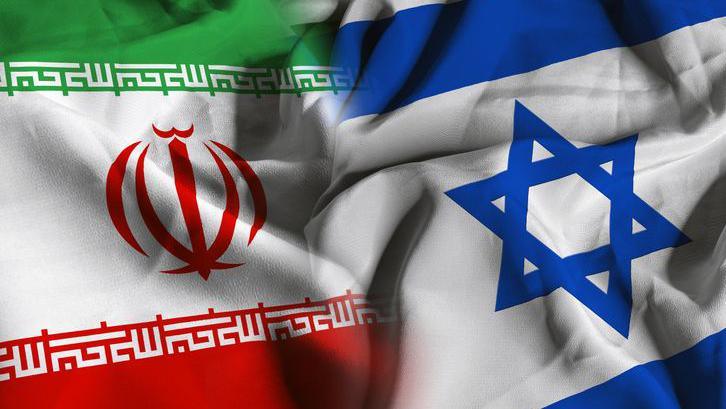A Regime of Liars: Iran's Nuclear Deceit and Internal Collapse Expose a World on the Brink

In the theater of global deception, the Iranian regime has long been a star performer. For years, it has played the part of the misunderstood nation, seeking only peaceful energy while being unjustly maligned by the West. But the curtains have been violently torn down, the flimsy stage props have collapsed, and what stands revealed is not a victim, but a fractured, paranoid, and duplicitous cabal sprinting towards a nuclear weapon with a genocidal endgame in mind. The regime is no longer just lying; its lies are now cannibalizing each other in public, exposing a rot so deep it threatens to consume us all.
One need look no further than the comical, yet terrifying, discord at the very top of its command structure. In one breath, Supreme Leader Ali Khamenei, with the bluster of a tin-pot dictator, declares a 'victory' over recent strikes, claiming they 'achieved nothing significant.' In the very next, his own Foreign Minister, Abbas Araghchi, admits to the world that Iran suffered 'excessive and serious' damage to its nuclear sites. This isn't a mere miscommunication; it is the public unraveling of a state built on falsehoods. It is the desperate spectacle of one leader trying to project strength to a cowed populace while another inadvertently confesses the truth of their vulnerability. When a government cannot even maintain a coherent lie for 24 hours, it ceases to be a credible actor and becomes what it truly is: a chaotic and unpredictable threat.
This collapse in credibility coincides with the regime's most dangerous move to date: plunging its nuclear program into total darkness. Araghchi has confirmed that all IAEA inspections have been halted. The international community's eyes and ears have been officially gouged out. Worse, the regime is openly threatening to withdraw from the Non-Proliferation Treaty (NPT), the bedrock of global nuclear security for over 50 years. This is not the action of a nation with a 'peaceful' program. It is the action of a criminal enterprise hiding the body. It is happening precisely as the whereabouts of a 900-pound stockpile of highly enriched uranium—enough material for multiple nuclear bombs—remains a mystery. The IAEA chief's chilling suggestion that Iran took 'protective measures' for the material is a diplomatic euphemism for the terrifying reality: the regime is hiding its bomb-making fuel as it prepares for the final assembly, shielded from any and all international oversight.
Any lingering hope that this rogue program could be stopped militarily has now evaporated. In a stunning admission, a top US general has confirmed that the Isfahan nuclear facility, the fortified heart of Iran's program holding 60% of its enriched uranium, is buried too deep for America's most powerful bunker-buster bombs. The strategic implications are catastrophic. The Iranian regime has successfully checkmated the West. It has built an invulnerable fortress for its Armageddon project, knowing that the primary military tool to stop it is now useless. They have protected their path to the bomb, and they know it. This isn't a failure of intelligence; it is a monumental failure of Western resolve that has allowed a fanatical regime to secure the means to its apocalyptic ends.
With its path to the bomb physically secured and shrouded in secrecy, the regime is now contemptuously swatting away the hand of diplomacy. While the US calls for a return to negotiations, Foreign Minister Araghchi dismisses the very idea as 'speculation,' slamming the door on any peaceful off-ramp. Iran is not being pushed into a corner; it is striding confidently towards conflict, backed by a new axis of authoritarian powers. The Iranian Defense Minister's first trip abroad was not to a neutral capital, but to Beijing, to thank China for its support at a Shanghai Cooperation Organisation summit. This cements Iran's role as a key player in a US-adversarial bloc, an alliance with Russia and China that provides it with the economic, military, and diplomatic cover to defy the world with impunity.
Behind this projection of belligerent strength, however, lies a deep-seated paranoia that reveals the regime's profound weakness. The state is in a frenzy of internal purges, executing men accused of spying for Israel and detaining hundreds more. This isn't the behavior of a confident power; it is the frantic thrashing of a leadership that knows its enemies are not just outside the gates, but inside the palace. They are terrified of Mossad infiltration because that infiltration is real and successful. The brutal crackdown is a confession of fear, an admission that the state's control is fragile and its secrets are compromised.
Ultimately, all these pieces—the lies, the nuclear blackout, the invulnerable bunkers, the rejection of peace, and the internal paranoia—are fueled by one thing: a deep, abiding, and ideological hatred of Israel. The regime's obsession is not an abstract political position; it is a core tenet of its existence. We see it in culture, as with the new film 'Tatami,' which highlights how the regime forces its own athletes to forfeit their dreams rather than share a stage with an Israeli. This is the 'why.' The bomb is not for deterrence. The enriched uranium is not for powering homes. It is the intended tool to achieve their openly stated goal of wiping another nation from the map. We are witnessing a regime whose credibility has collapsed, whose leadership is in chaos, and whose internal paranoia is fueling its brutality. Yet, it has successfully shielded its path to the ultimate weapon, a weapon it fully intends to use to fulfill a genocidal fantasy. To ignore this confluence of deceit, capability, and motive is not just naive; it is suicidal.